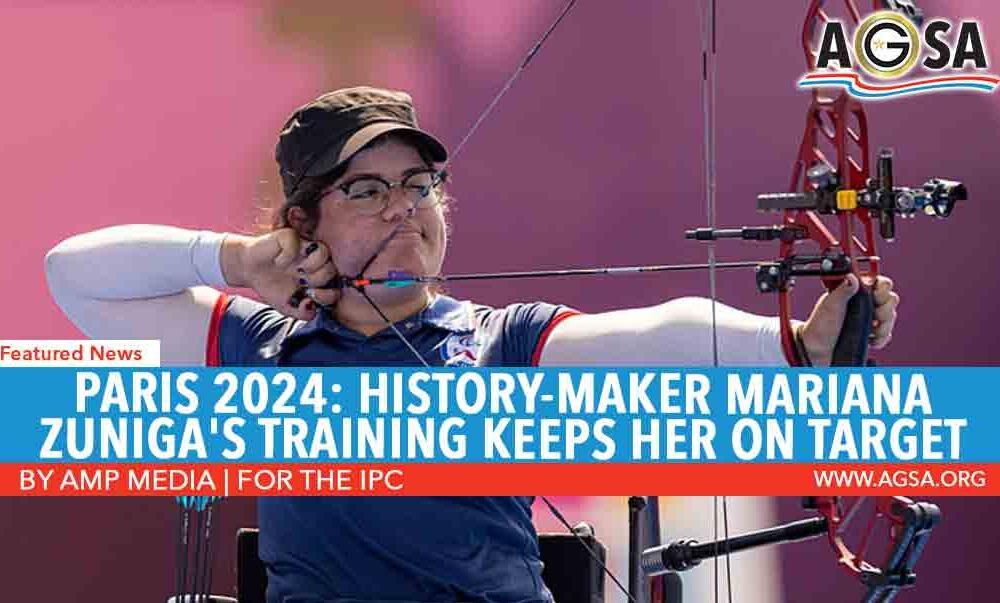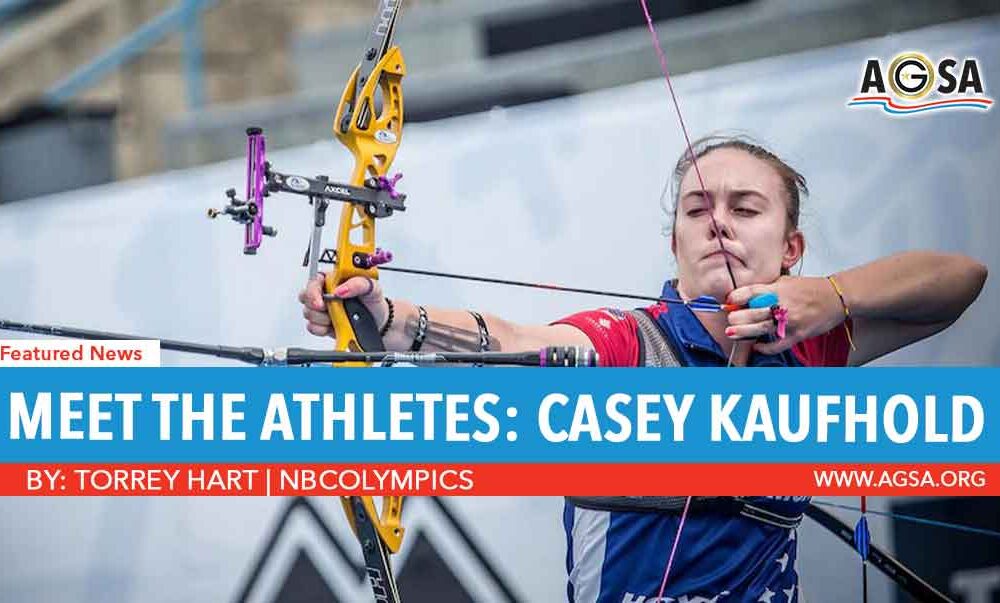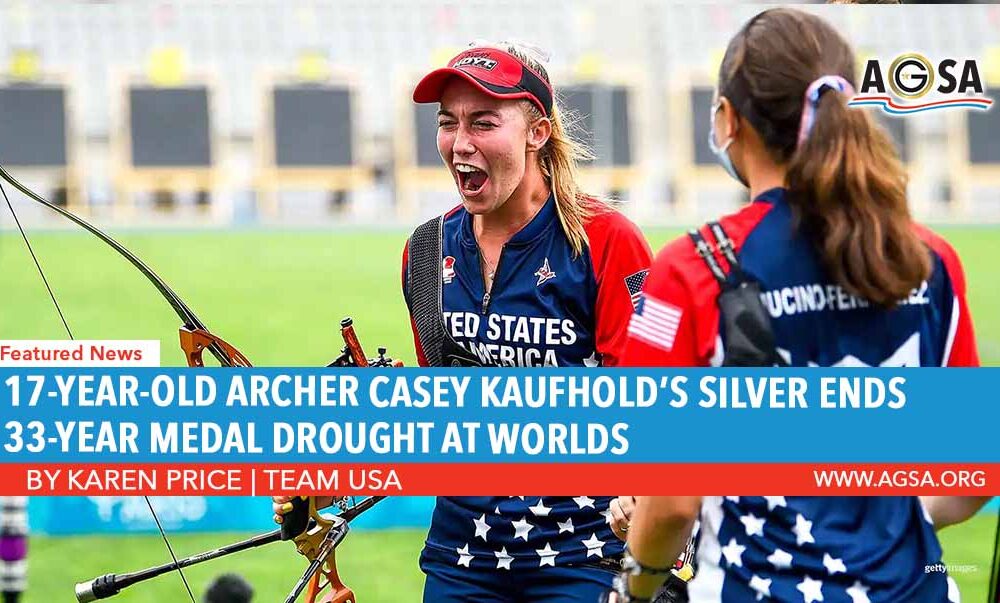By AMP Media | For the IPC
Chilean Paralympic archer Mariana Zuniga was 10 years old when she watched the animated movie “Brave”, where the main character, a young Scottish princess named Merida, uses a bow and arrow.
“There was this iconic scene where Merida puts one arrow after the other like Robin Hood, and that scene made me fall in love. I told my mom that I wanted to experience that,” Zuniga, 21, said.
She had tried out wheelchair tennis before but not really fallen for it. Archery was love at first sight, and Zuniga was good. When she was 19 years old, she won the individual compound W2 silver medal at the Tokyo 2020 Paralympic Games.
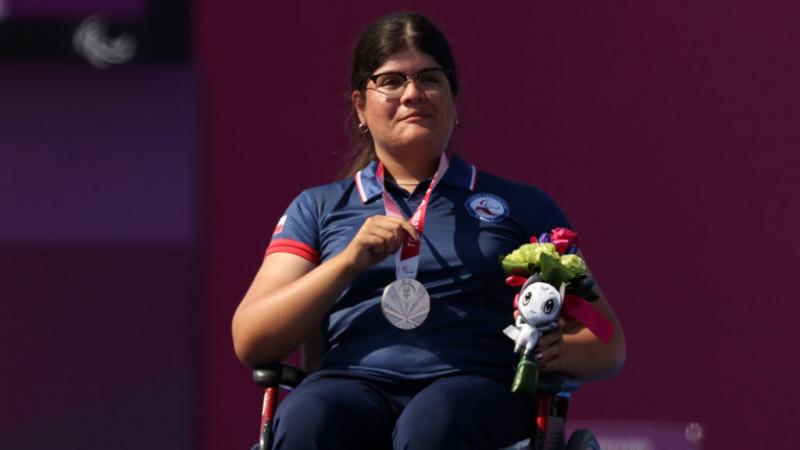
She was the first Chilean archer to compete at the Paralympics. Her medal was the first won by an archer from the Americas in the compound open women’s category.
“Tokyo was a surprise,” Zuniga said. “We weren’t going to Tokyo expecting a medal. We were looking to gain experience, just living the experience of having qualified for the Paralympic Game And then the medal came.”
Balancing act
Today she combines psychology studies at a university in Chile’s capital Santiago with training five to six times a week and preparations for Paris 2024.
Every day looks a little bit different as she is trying to fit those two sides of her life together.
“This semester I am studying in the mornings, so when I get up, I prepare things for the university and also for training because after studying I go to train,” she said.
It always, though, starts with an alarm clock.
“I would love to be able to wake up with my biological clock. But that’s impossible because I really like to sleep.”
Where many people get over that morning tiredness with a cup of coffee, Zuniga does not. “I feel like it makes me shiver. My pulse goes up, and of course, especially on training days, that’s not good for the precision,” she said, adding that her breakfasts are usually rather all about eggs.
When she is not training, she can allow herself some caffeine. “If I’m at home on the weekend and have nothing to do, then I might have a cup of coffee.”
She likes to cook but she prefers it when it is simple. She either prepares something to eat at home – “usually something Latin” – or eats at the university after her morning classes are over.
“They always sell good dishes there, for example salads that are very complete and dishes with carbohydrates, with proteins. There I also buy some snacks for the afternoon. After that I start with my bow assembly.”
Before she arrives at the training ground, she has already put together her archery gear. She lives 45 minutes from the range, so every minute saved between practice and university is valuable. Assembling the equipment takes about five minutes.
“I get to the field and start the warm-up, beginning with a joint movement, moving the arms, in different directions,” Zuniga said.
“Then I do a little warm-up with an elastic band, and then I start the training.”
Perfecting technique
She admits she does not have a stretching programme, but always does the same movements including stretching the shoulder blades, neck and torso.
And it works. Zuniga says she has never had any serious injuries. She only feels a little pain in her chest and in the trapezius muscle in her upper back when she gets a massage at the end of the week.
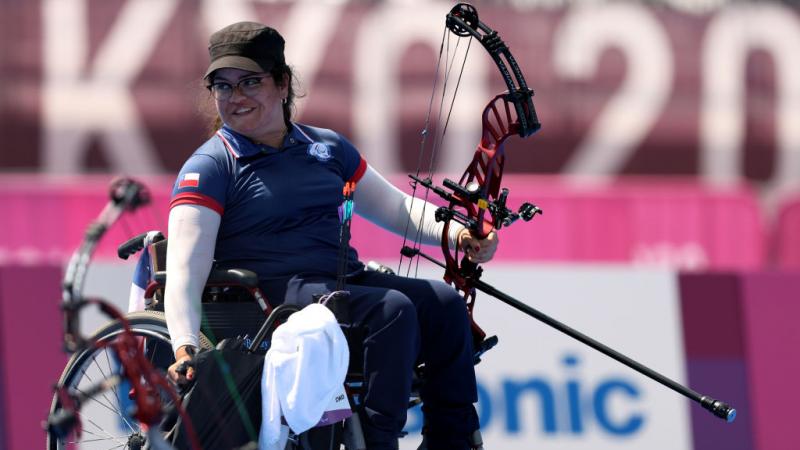
What she does in training depends on where in the season she is, and in what stage of competition she is in.
“If we were closer to an event, we are only polishing details of the technique. It depends a lot,” she said.
“When I for example need to polish a very specific technical aspect, I stay short, usually three metres from the target. There are times when I spend a whole week shooting from three metres.”
“Archery is a sport in which one is always learning and unlearning. One can return to a technical aspect or improve something that I worked on, for example, three years ago.”
A general training session lasts for three to four hours. Zuniga likes to train shooting from 70 metres.
“It is a challenge to hit the target from further away and it is also part of the exercise to polish the timing of the shot,” she said.
“I like it a lot, that exercise feels like a very different sensation. It’s like that thing of wanting to be more accurate when shooting.”
Some training days she has been shooting at 18 metres, another competition distance.
“I generally tend to be more slick when shooting at close range than at long range. Yes, there I don’t know what the principle is, but I think that maybe when one is closer all the movements become a little smaller,” she said.
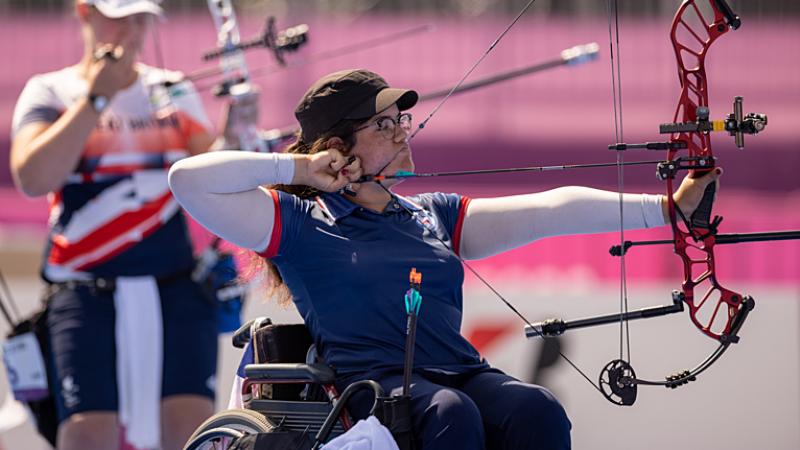
Zuniga also goes to the gym about twice a week. “There my physical coach does different exercises with dumbbells, with a ball, elastic, and co-ordination exercises. I’m terrible at co-ordination exercises,” she said.
“We increase the load, depending on the period. And there we also work with specific muscle groups, depending on what my coaches see in the actual shooting practice.”
In archery it is important to be physically strong: “The main muscles that one – hopefully I – should have super good all the time are the triceps,” she explained.
“The triceps give us a lot of stability in the arm that supports the bow, and that means an improvement in aiming.”
But working on her strength has not always been a favourite activity for the young archer.
“At first I hated it because I didn’t train with the gym coach but my coach who watches over my archery. He did the exercises for me and they were only elastic band exercises,” she said.
Feeling like she was getting nowhere, she started training at a gym with her teammates, and loved it. ”Especially those days when, for example, I’m more stressed about university or things like that. I get to the gym and throw out all my energy and it’s clearing up a little,” she said.
Dreaming of Paris
After training, Zuniga goes back home to take care of the homework from university and other housekeeping. She has dinner – “usually something Latin” – and spends some time with her family and boyfriend. The same goes for Sundays, which are usually training-free. Zuniga’s boyfriend is also an athlete, so they also get to see each other at training, to which her parents drive her.
Her close connection to her family is also something that made her recognise herself in Merida in “Brave”.
“The movie shows a lot about the protagonist’s relationship with her mother. My mother has also been fundamental in my personal and sporting process, she has always been the one who has supported me in everything,” she said.
At around 11pm she goes to sleep, ready to repeat it all the next day, over again until this summer’s Games. That is where her focus is right now. After that alarm clock rings, her dreams are about winning another medal, perhaps one in gold.
“I think that whenever an athlete goes to a mega event or tournament in general, he or she always dreams of reaching the podium. If not, I wouldn’t be there,” Zuniga said.
